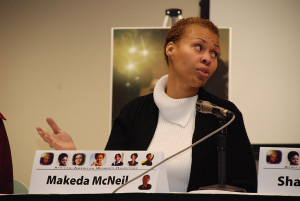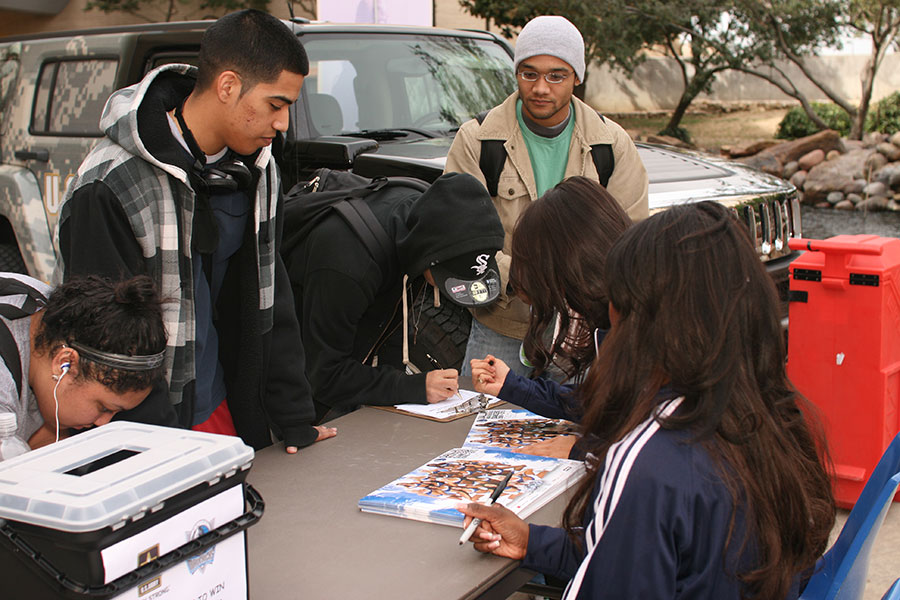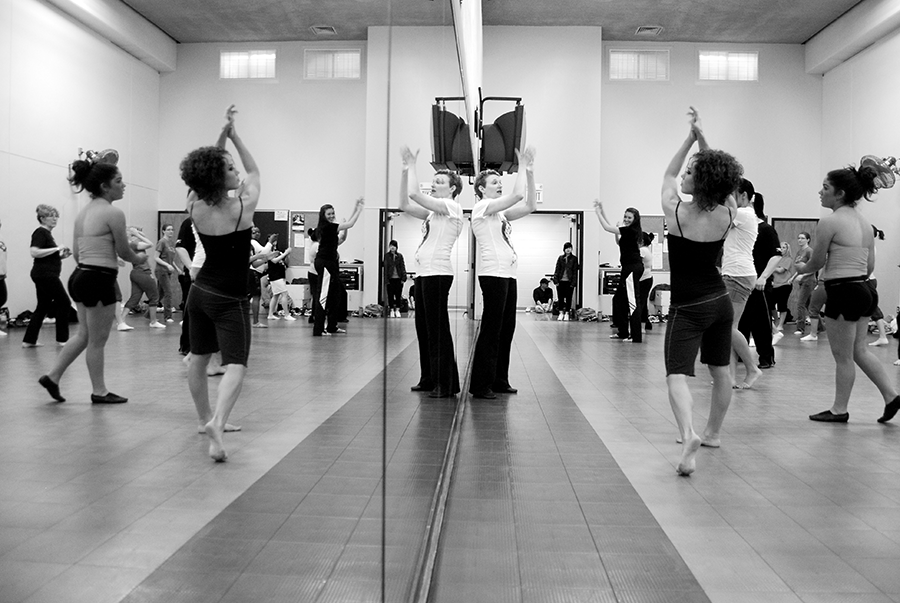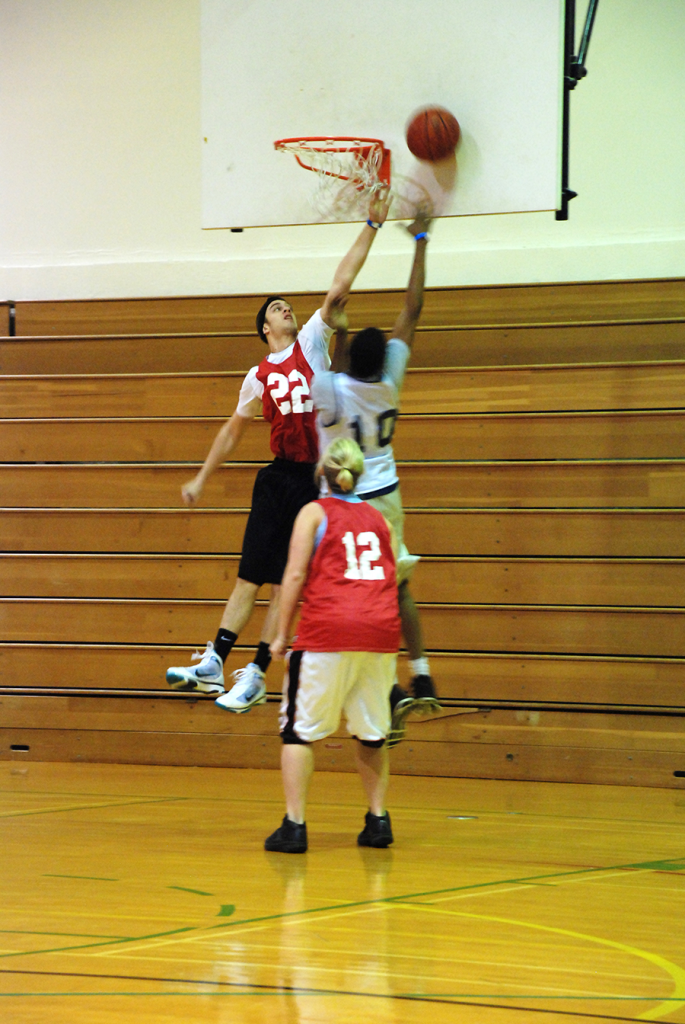By ja less a bonds/reporter

John Jones/The Collegian
African-American women’s hair is a history in itself, so some South Campus faculty, students and guests presented Hairstory Feb. 23 to share the information.
Starting in the 1600s, African-American women have had many battles and debates when it comes to their hair.
Education instructor Altheria Gaston, math associate professor Yolanda Parker, student Shawndra Blue and guests Shandra Smith, Makeda McNeil and Sepsimone Johnson served as leaders and examples of what “natural” beauty is all about.
From texture to variation of styles, the panelists agreed this grade of hair is the most versatile. Natural fro or natural curls, twists to locks, long, short and even bald, the women explained and illustrated the benefits of the natural look through their own hair and the hair of their models.
They showed the crowd how to wear these looks and urged them to be comfortable and confident with their chosen styles.
“Today our mission is to embrace, educate and celebrate our natural beauty and natural roots,” said De Phillips Johnson, founder of Nappiology Inc.
Smith was the newest speaker to go through the transition to natural.
“My main concern is putting all the money into it,” she said.
But after going without a relaxer for straightening, Smith said she will never go back to that because now she is comfortable with the way her hair feels and looks. She said she was inspired by her mother and aunts.
Makeda McNeil said she has dealt with questions such as “Can I touch it?” and “Do you wash it?”
When people don’t have the same kind of hair, they are oblivious to what can be done with it or why someone would choose to go that route, the panelists said.
Many different thoughts exist about the look that the panelists said they are proud of, but they wear it everyday and everywhere. They said it is acceptable for most adults at school or in the workplace. Parker said some people think it’s not appropriate in some places like a hospital, but people in other work fields think it’s fine.
Children of this “natural” beauty group sometimes disagree with that lifestyle. Some panelists said children get picked on because the other kids around them don’t understand why their hair looks the way it does.
Audience member Cherita Montgomery said she is going through this currently with her young daughters. She said she has tried many different things to compromise with her 11- and 13-year-old girls but after about a month, those choices she made are no longer worth the money she spent on them because of the state of their hair.
“My 11-year-old is the one who really comes to me saying, ‘Mommy, I want a perm,’” Montgomery said.
Panelists told her to stick to her guns and let that decision be up to her and only her. She has to set the tone for her household, they said.
“I am beautiful,” Phillips Johnson said, ending the session.
























